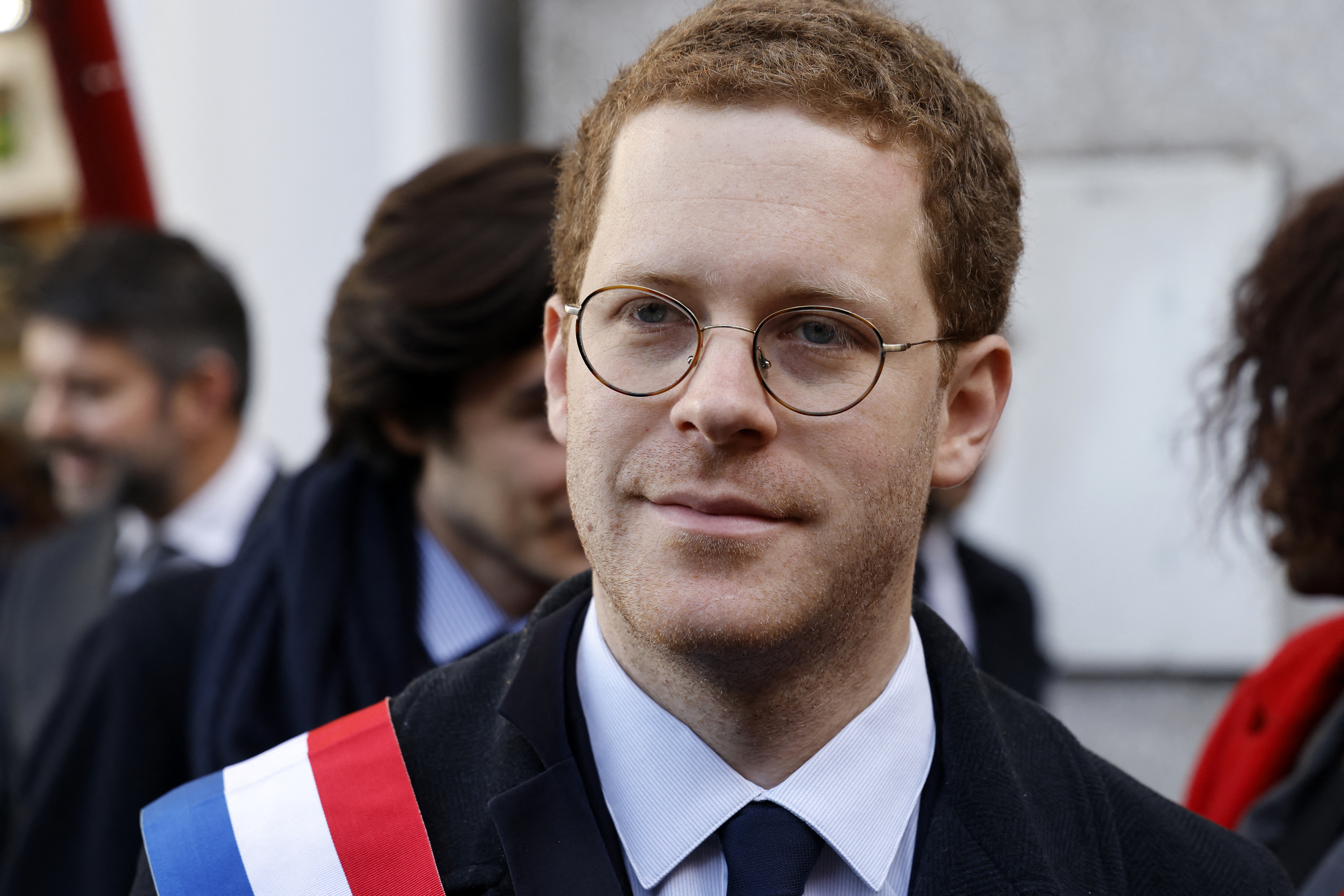no Matter about the novel "Inheritance and environment" and the show of the work at Den Nationale Scene in Bergen really should be about the family's Meeting, the battle between art and the law never come to be fought with the shiny sword in open terrain. It will never take place face to face. It will never get in the dialogue. For the art of speaking from behind a mask, that is why it lives so strongly in us. It is the being, and its victory, or path, as one sees it.
IN HIS WORLD: Helga Hjorth wrote the book "Free will" as a reaction to his sister Vigdis Hjorths book "Heritage and environment". Photo: Lars Eivind Bones Show moreLawyer, Helga Hjorth will have his sister, the novelist Vigdis Hjorth, out of skyttergraven with "Heredity and environment" and meeting her to an open duel on their common family's true history. But the battle that is called is in itself an impossibility. There are not even words against the words, for art and jusens message is carried not of the same language. The sisters Hjorth live in their own world. The weekend's Meeting will with all their morals, ethics and the law never succeed in its attempt to get "justice" to prevail in a battle against a roman. She can turn and swing a sword, without offending against the blank brass. She turns toward serenity although: not against an adversary in a courtroom, but against a romans silent scream.
Fiksjonen will live forever, it is cast in stone. But the debate and the words of living models in virkelighetslitteraturen and what a theater chooses to set up and why is not the less interesting, primarily because it conceals something other than what it purports to be about.
MODERN: Cecilie C. Huitdfeldt. Show morethe Debate about the novel "Heredity and environment" has the wavy back and forth in the Norwegian public and the press since the book published in 2016 and it is notified a lawsuit against The Nationale Scene in Bergen for defamation in connection with the theater's production of the novel in 2018. As an attempt to keep alive the debate about virkelighetslitteraturen and an author's/artist's moral responsibility in the wake of the release of "Heritage and environment", wrote litteraturviter, and writer Pernille Høegh in Aftenposten on Friday 8. February debattartikkelen "Pilloried in the 'artistic frisinnets' name". But it is the battle for credibility and ownership to the truth about a family's history it has created which really is debatable.
Pernille Høegh has recently interviewed the Weekend's Meeting. She will stand on morality, the foundations of ethics and intervjuobjektets page, and ask: "But how can you put up a play based on a novel which has created so wide debate on legal issues, ethics, and morals without having to deal with jusen in all and without the deliberations and what this does with the real people who feel themselves singled out and used in this 'artistic frisinnets' name"?
This point is so willed politically correct and krenkerelatert that it quickly becomes historieløst. For the first: It is not art or kunstinstitusjonens responsibility to lead debate about whether a novel is true to a family or not and whether people feel defamed or not. For the second: It is, however, the role of art and kunstinstitusjonenes responsibility and role to mirror society, time and culture in their repertoire and their themes.
Art and literature has violated the individuals and families at all times. It is in the nature of art that it encounters and hit something unpleasant in the us, in the culture, the family, and in time. Without discomfort, no art. The new today is that krenkelsesterskelen have been lower; we live in a time where one should not be able to withstand anything and where the action just a keystroke away. The family Meeting could let the silence prevail about fiction and reality in the Vigdis Hjorths novel, let it live its own life in the fiksjonens the world. But instead, they chose the front line. Vigdis Hjorth is now indirectly being sued by his own mother and sister (and in her late father's name) for defamation. It is strong meat. But it is in and of itself is not something new in the art and literature world.
the Weekend's Meeting will la jusens tab fly victorious over the remarks that she throws out of his sister's novel. She will crush the work and the sister's word against their own. Her upset is understandable, given that she read the novel "Inheritance and environment" literally. But why would she go out in the sword fighting in the public space? Well, possibly because she herself will administer the truth and know best about the family Meeting. She will not know about the other versions of it that have happened in his family than her own. It is a classic familiekonflikt. It is, unfortunately, not so much about the law or morality, but about søskens narcissism. To would own his own parents alone, and would control their legacy. It's not just about justice or truth, it is about eiertrang. Who knows about all that has happened in a family? All the members have not always been present at the same time. Dark secrets are everywhere. Everyone has their moments with each other. There are as many versions of a family's history as it is members in the. One must always bear their brother or sister's version in real life.
literary history is otherwise full of similar cases of defamation and attacks on the authors. Henrik Ibsen levendegjorde in pieces such as "An enemy", "Common", "wild duck" and "Et dukkehjem" familiehistorier of bankruptcy, infidelity, hereditary venereal diseases, insanity, fraud, defamation, and death.
today we Karl Ove Knausgård writes to break the heavy familial contract and the code that people suffer from throughout his life; the legacy you carry, silence that kills the individual, the misunderstood, the lifelong loyalty between a skadeskutt children and their parents. He writes to cherished trauma; open the hidden wound, and to clean and make it widely available, it is darkness that happens in many families, before and now, it that we are so selfless trained to not talk about, just of concern for "the family", the one we can't enter, the one that will stab us in the back if we do so. But had Vigdis Hjorth taken "into account" how the family interprets the word, she had never been able to write something authentic, never been able to be a good novelist.
"It is just that you do not 'can' write about, you should write!" claims the famous French philosopher and writer Helene Cixous. That good literature is written with its own steaming blood, is one of her mantra. Vigdis Hjorth to take up the legacy here; she writes the pain.

 Rishi Sunak wants a tobacco-free UK
Rishi Sunak wants a tobacco-free UK In Africa, the number of millionaires will boom over the next ten years
In Africa, the number of millionaires will boom over the next ten years Iran's attack on Israel: these false, misleading images spreading on social networks
Iran's attack on Israel: these false, misleading images spreading on social networks Iran-Israel: David Cameron wants the G7 to impose “coordinated sanctions” on Iran
Iran-Israel: David Cameron wants the G7 to impose “coordinated sanctions” on Iran New generation mosquito nets prove much more effective against malaria
New generation mosquito nets prove much more effective against malaria Covid-19: everything you need to know about the new vaccination campaign which is starting
Covid-19: everything you need to know about the new vaccination campaign which is starting The best laptops of the moment boast artificial intelligence
The best laptops of the moment boast artificial intelligence Amazon invests 700 million in robotizing its warehouses in Europe
Amazon invests 700 million in robotizing its warehouses in Europe Boeing tries to defuse the long-haul crisis
Boeing tries to defuse the long-haul crisis Solar panels: French manufacturer Systovi announces the cessation of its activities due to “Chinese dumping”
Solar panels: French manufacturer Systovi announces the cessation of its activities due to “Chinese dumping” Tesla: canceled in court, Musk's huge compensation plan will again be submitted to shareholders
Tesla: canceled in court, Musk's huge compensation plan will again be submitted to shareholders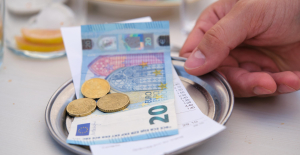 Two, three or a hundred euros: who are the most generous customers with tips?
Two, three or a hundred euros: who are the most generous customers with tips? Bruno Vandelli: one year suspended sentence required against the choreographer for corruption of a minor
Bruno Vandelli: one year suspended sentence required against the choreographer for corruption of a minor Jul fills the Stade de France and the Vélodrome in record time
Jul fills the Stade de France and the Vélodrome in record time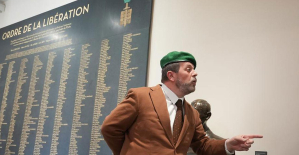 Immersion among the companions of the Liberation
Immersion among the companions of the Liberation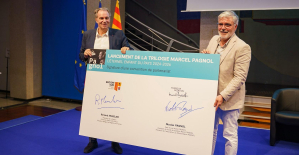 Provence-Alpes-Côte d’Azur releases several hundred thousand euros for the promotion of the work of Marcel Pagnol
Provence-Alpes-Côte d’Azur releases several hundred thousand euros for the promotion of the work of Marcel Pagnol Skoda Kodiaq 2024: a 'beast' plug-in hybrid SUV
Skoda Kodiaq 2024: a 'beast' plug-in hybrid SUV Tesla launches a new Model Y with 600 km of autonomy at a "more accessible price"
Tesla launches a new Model Y with 600 km of autonomy at a "more accessible price" The 10 best-selling cars in March 2024 in Spain: sales fall due to Easter
The 10 best-selling cars in March 2024 in Spain: sales fall due to Easter A private jet company buys more than 100 flying cars
A private jet company buys more than 100 flying cars This is how housing prices have changed in Spain in the last decade
This is how housing prices have changed in Spain in the last decade The home mortgage firm drops 10% in January and interest soars to 3.46%
The home mortgage firm drops 10% in January and interest soars to 3.46% The jewel of the Rocío de Nagüeles urbanization: a dream villa in Marbella
The jewel of the Rocío de Nagüeles urbanization: a dream villa in Marbella Rental prices grow by 7.3% in February: where does it go up and where does it go down?
Rental prices grow by 7.3% in February: where does it go up and where does it go down? Europeans: the schedule of debates to follow between now and June 9
Europeans: the schedule of debates to follow between now and June 9 Europeans: “In France, there is a left and there is a right,” assures Bellamy
Europeans: “In France, there is a left and there is a right,” assures Bellamy During the night of the economy, the right points out the budgetary flaws of the macronie
During the night of the economy, the right points out the budgetary flaws of the macronie Europeans: Glucksmann denounces “Emmanuel Macron’s failure” in the face of Bardella’s success
Europeans: Glucksmann denounces “Emmanuel Macron’s failure” in the face of Bardella’s success These French cities that will boycott the World Cup in Qatar
These French cities that will boycott the World Cup in Qatar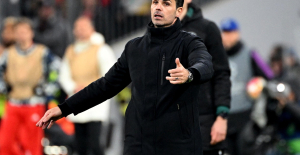 Champions League: “It’s painful, but we have to learn,” says Arteta
Champions League: “It’s painful, but we have to learn,” says Arteta Champions League: “Madrid never dies”, says Ancelotti
Champions League: “Madrid never dies”, says Ancelotti Champions League: Manchester City played “exceptionally”, according to Guardiola
Champions League: Manchester City played “exceptionally”, according to Guardiola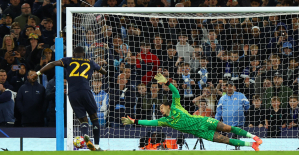 Champions League: video summary of the Manchester City-Real Madrid clash
Champions League: video summary of the Manchester City-Real Madrid clash







